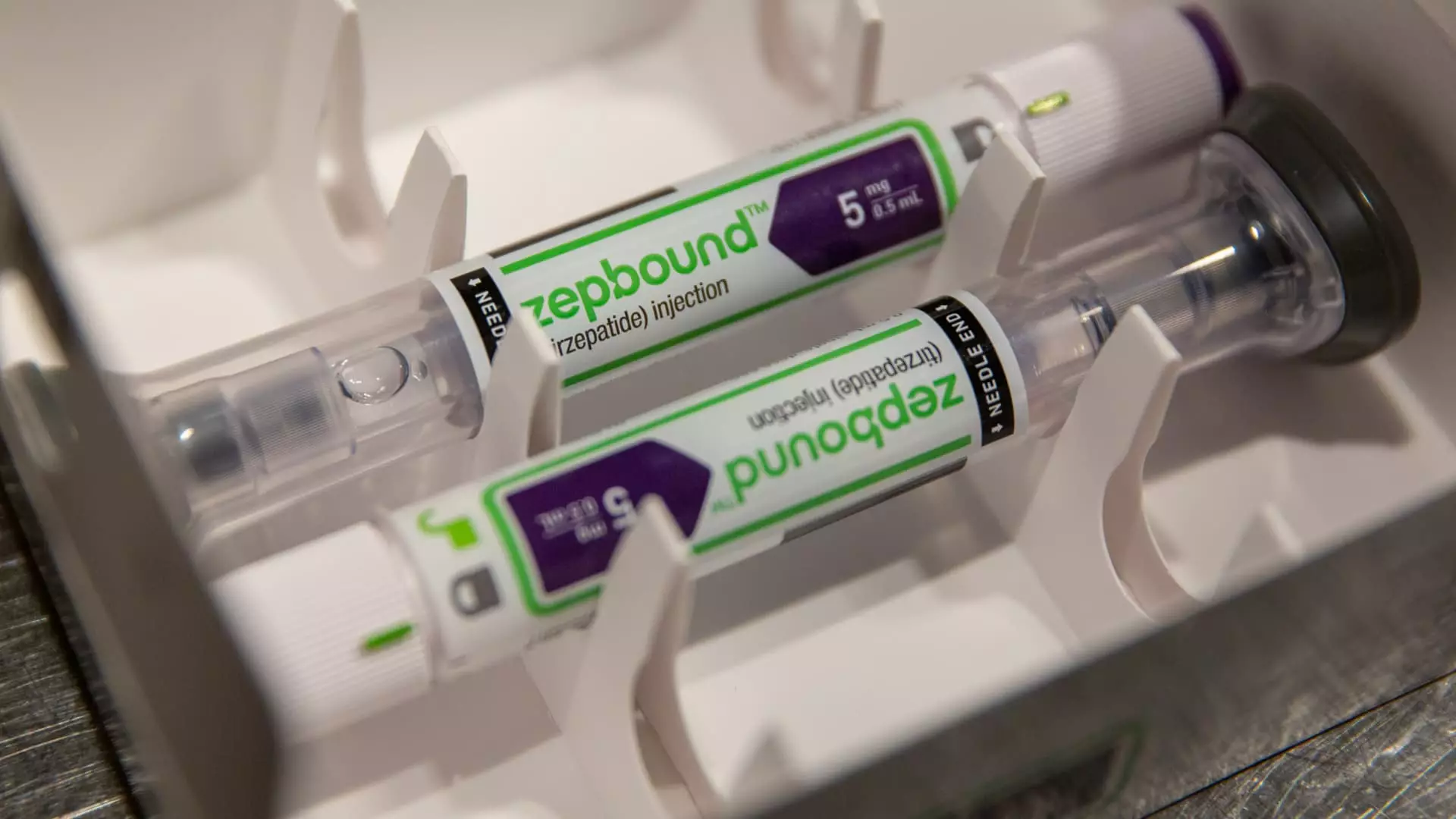The late-stage trial data released by Eli Lilly regarding their weight loss drug, Zepbound, has shown significant benefits for patients suffering from a common type of heart failure and obesity. According to the findings, patients who were treated with Zepbound were 38% less likely to be hospitalized or die due to heart complications compared to those who received a placebo. Additionally, these patients were also less likely to need to increase their heart failure medication. This study adds to the growing body of evidence that GLP-1 drugs like Zepbound have health benefits beyond weight loss and blood sugar regulation.
Eli Lilly reported that Zepbound not only improved heart failure symptoms but also helped reduce physical limitations in patients. This is a significant development for individuals with heart failure, as the condition is often associated with a high burden of symptoms and limitations that impact their daily lives. Some of the common issues faced by these patients include fatigue, shortness of breath, and a decreased ability to exercise. The fact that Zepbound was able to address these challenges is a positive outcome for both patients and healthcare providers.
The trial followed over 700 patients with heart failure with preserved ejection fraction (HFpEF) and obesity for a median of two years. HFpEF is a condition where the heart is unable to pump enough blood to meet the body’s needs. This type of heart failure is particularly challenging as it is linked to a range of symptoms and limitations that affect a patient’s quality of life. Eli Lilly estimates that almost half of all heart failure cases are due to HFpEF, with nearly 60% of affected patients also having obesity.
The safety data on Zepbound was found to be consistent with previous trials of the drug. The most common side effects reported were gastrointestinal, such as nausea and diarrhea, and were generally mild to moderate in severity. These findings are crucial for healthcare providers and patients to weigh the benefits of the treatment against potential side effects.
Comparison with Competitors
Eli Lilly’s main competitor in the GLP-1 market, Novo Nordisk, has also made strides in the treatment of heart failure patients with weight loss drugs. Novo Nordisk’s drug, Wegovy, has shown promise in treating patients with HFpEF and has received approval for reducing the risk of serious heart complications. Both companies have been exploring the use of their drugs in various conditions, such as chronic kidney disease and fatty liver disease. While GLP-1s work by suppressing appetite and regulating blood sugar, Zepbound targets both GLP-1 and GIP hormone receptors, providing a unique approach to treatment compared to Wegovy.
Eli Lilly’s weight loss drug Zepbound has demonstrated significant benefits for patients with heart failure and obesity, particularly those with HFpEF. The findings from the late-stage trial highlight the potential for broader insurance coverage of GLP-1 drugs like Zepbound in treating various health conditions beyond weight loss and blood sugar regulation. Further research and data presentation will be essential in understanding the full impact of these drugs on improving patient outcomes and quality of life.

